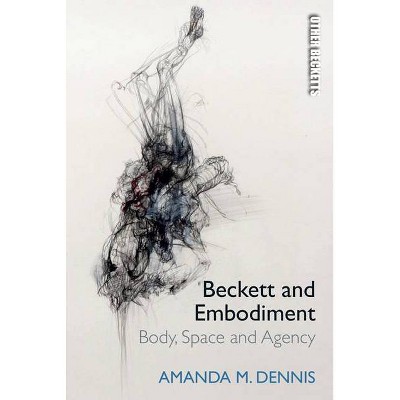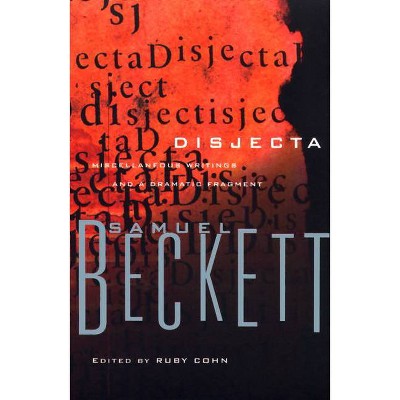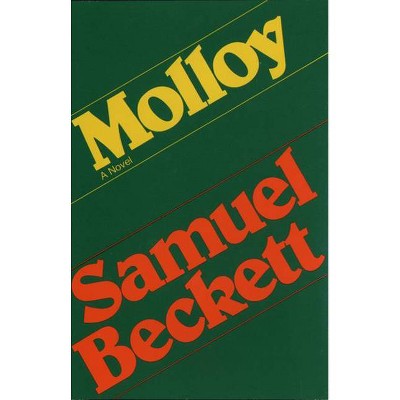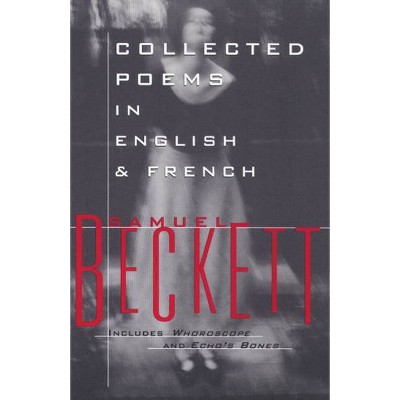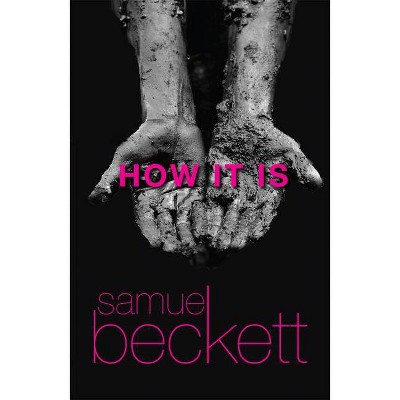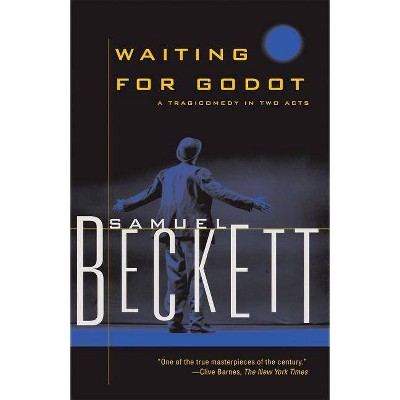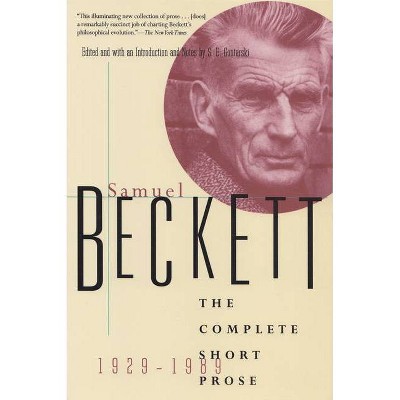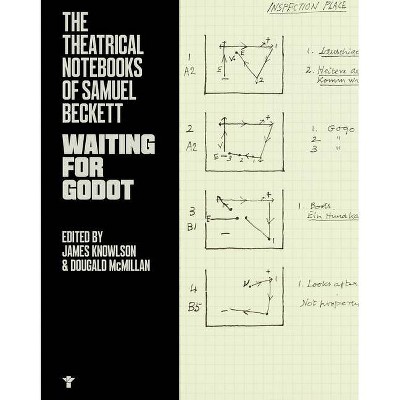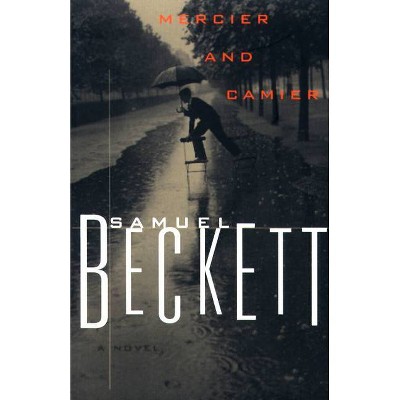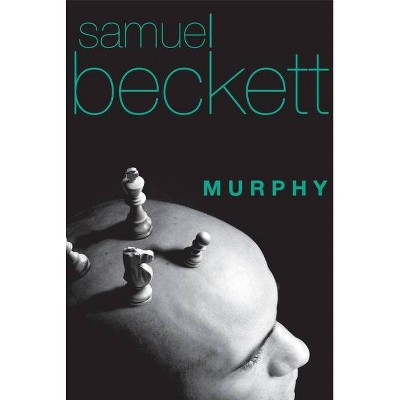Samuel Beckett and the Terror of Literature - (Other Becketts) by Christopher Langlois (Paperback)
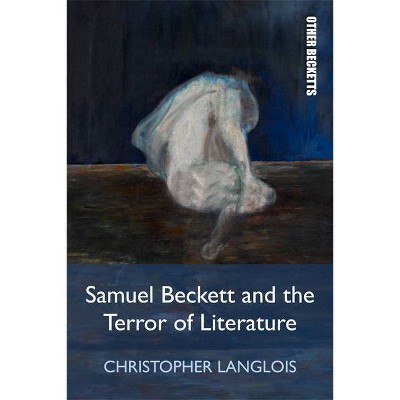
Similar Products
Products of same category from the store
AllProduct info
<p/><br></br><p><b> About the Book </b></p></br></br><p><i>Samuel Beckett and the Terror of Literature</i> addresses the relevance of terror to understanding the violence, the suffering, and the pain experienced by the narrative voices of Beckett's major post-1945 works.</p><p/><br></br><p><b> Book Synopsis </b></p></br></br><p><strong>Provides a sustained comparative reading of the relation between Beckett and Blanchot through its novel conception of the language and phenomenon of terror</strong></p> <p></p><i> <p>Samuel Beckett and the Terror of Literature</i> addresses the relevance of terror to understanding the violence, the suffering, and the pain experienced by the narrative voices of Beckett's major post-1945 works in prose: <i>The Unnamable</i>, <i>Texts for Nothing</i>, <i>How It Is</i>, <i>Company</i>, <i>Ill Seen Ill Said</i>, and <i>Worstward Ho</i>. Through a sustained dialogue with the theoretical work of Maurice Blanchot, it accomplishes a systematic interrogation of what happens in the space of literature when writing, and first of all Beckett's, encounters the language of terror, thereby giving new significance - ethical, ontological, and political - to what speaks in Beckett's texts. <i> </p></i><b> <p></p> <p>Key Features</p> <ul></b> <p> <li>Articulates a novel conceptual framework through the language of terror for reading Beckett's major post-1945 works in prose, all the while engaging with key thinkers in the discourse of contemporary critical theory like Maurice Blanchot, Emmanuel Levinas, and Alain Badiou</li> <li>Provides for the first time a thorough articulation of the significance of terror to Blanchot's understanding not only of what literature is <i>as</i> literature, but also of the literary history of modernity that Blanchot explicitly traces from the Marquis de Sade to Samuel Beckett</li> <li>Affords literary studies (and Beckett and Blanchot studies specifically) a distinctive and timely voice in the veritable terror industry of scholarly research that has proliferated in the twenty-first century against the politico-historical backdrop of the War on Terror</li></ul><p/><br></br><p><b> From the Back Cover </b></p></br></br>*APPROVED* The first book-length study to provide a sustained comparative reading of the relation between Beckett and Blanchot through its novel conception of the language and phenomenon of terror Samuel Beckett and the Terror of Literature addresses the relevance of terror to understanding the violence, the suffering, and the pain experienced by the narrative voices of Beckett's major post-1945 works in prose: The Unnamable, Texts for Nothing, How It Is, Company, Ill Seen Ill Said, and Worstward Ho. Through a sustained dialogue with the theoretical work of Maurice Blanchot, it accomplishes a systematic interrogation of what happens in the space of literature when writing, and first of all Beckett's, encounters the language of terror, thereby giving new significance - ethical, ontological, and political - to what speaks in Beckett's texts. Christopher Langlois obtained his PhD at the University of Western Ontario in 2015, and then held a SSHRC Postdoctoral Fellowship in the Department of English at McGill University where he completed this book.<p/><br></br><p><b> Review Quotes </b></p></br></br><br><p>Langlois's book is a rigorous study of literary terror in theoretical and aesthetic modernism in Europe. It is not only a welcome addition to literature on Blanchot and Beckett, but also an important contribution towards understanding terror as a historical affect with onto-epistemological qualities. In our world, where terrorism has become perhaps the most important global problem, the book conceptually investigates this important notion of terror and even resignifies it in the process. It raises serious questions about any simplistic construction of a literary ethic by reminding us how the literary is itself the ontological hotbed of terror.</p>--Arka Chattopadhyay "Modernism/modernity "<br><br><p>Thus, in reading Beckett alongside Blanchot via the conceptual framework of terror, Langlois finds Beckett's work to be inextricably political, offering a corrective to the widespread critical assumption that both Blanchot and Blanchot's version of Beckett are ahistorical and apolitical thinkers. [...] With great power and critical sensitivity, Langlois corrects this understanding of Blanchot and in so doing offers a whole new understanding of Beckett, which is certainly no small achievement. [...] This work is one of the best monographs on Beckett to appear in recent years, and in creating a new understanding of Beckett acutely relevant to our own twenty-first century historical pressures and exigencies, Langlois pushes Beckett studies forward in challenging and new ways.</p>--Jacob Hovind "The French Review "<br><p/><br></br><p><b> About the Author </b></p></br></br><p>Christopher Langlois teaches in the Department of English at Dawson College, Montréal, Canada. He has published articles in such journals as Twentieth-Century Literature, College Literature, Mosaic, Samuel Beckett Today/Aujourd'hui, and the Faulkner Journal, and he is the editor of Understanding Blanchot, Understanding Modernism (Bloomsbury 2018).<p>
Price History
Cheapest price in the interval: 33.95 on November 8, 2021
Most expensive price in the interval: 33.95 on December 20, 2021
Price Archive shows prices from various stores, lets you see history and find the cheapest. There is no actual sale on the website. For all support, inquiry and suggestion messagescommunication@pricearchive.us
